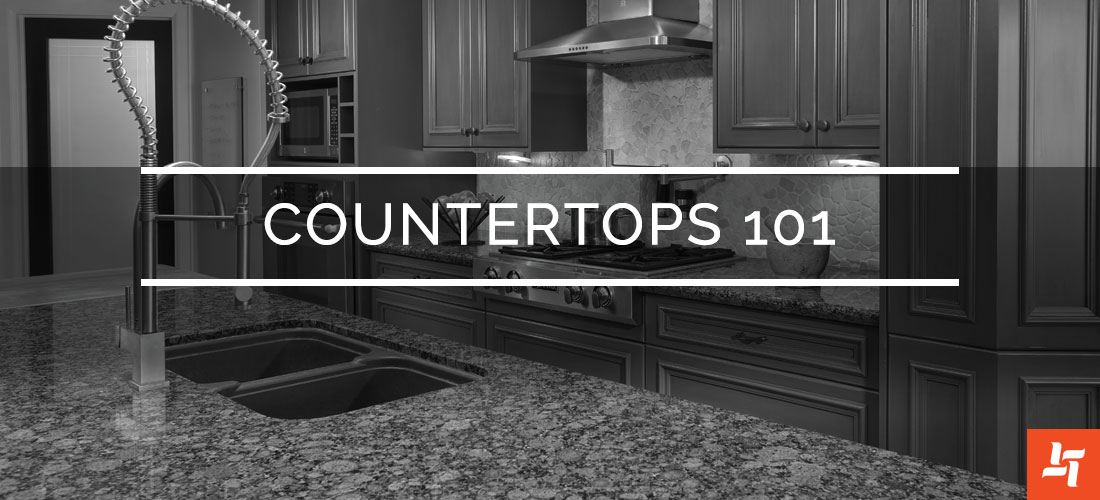
Countertops 101
With seemingly endless options for countertops, deciding what works best for your needs can be overwhelming. We’ve compiled a straightforward list with everything you need to know: the pros, the cons and cost.
Stone
Limestone
Average Cost: $95-150/sq. foot
Durability (Dent and Scratch Resistance): Poor
Heat Resistance: Average
Stain Resistance: Average (with proper finish)
Cleaning and Maintenance: Ensure counter is professionally sealed and keep an eye on the finish over the years – has a reputation for weathering easily. Cleaning requires only a damp cloth.
Pros vs Cons:
Pros: The naturally white and off-white colour shares a similar luxurious look and feel to marble for a more affordable price. Limestone is an abundant material compared to other countertops and is therefor a greener option.
Cons: Compared to other stones, Limestone is fairly fragile. This countertop has a reputation for being prone to scratching and weathered discolouration if finish isn’t applied correctly or maintained.
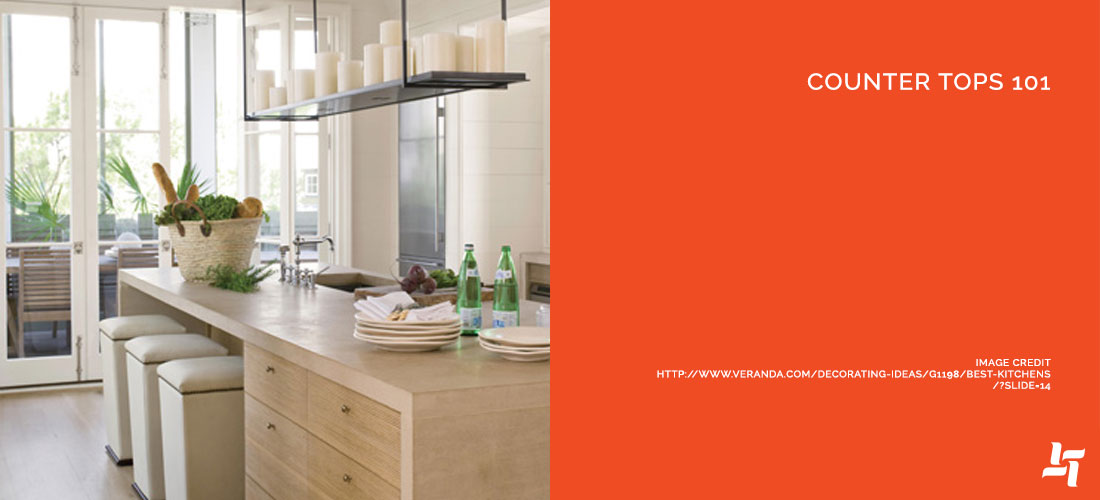
Quartz
Average Cost: $100-250/sq. foot
Durability: Excellent
Heat Resistance: Excellent
Stain Resistance: Excellent
Cleaning and Maintenance: Non porous surface, so simple cleaning with soap and water is all that is needed; no sealant necessary.
Pros vs Cons:
Pros: Tough but malleable engineered material means it can resist scratches and dents, while still offering a wide variety of looks. This material also allows for larger slabs, meaning less joints and seams. Quartz is long lasting and brings very few toxin or allergenic properties into the home.
Cons:Transportation costs make this one of the more expensive options, as most brands do not mine domestically.
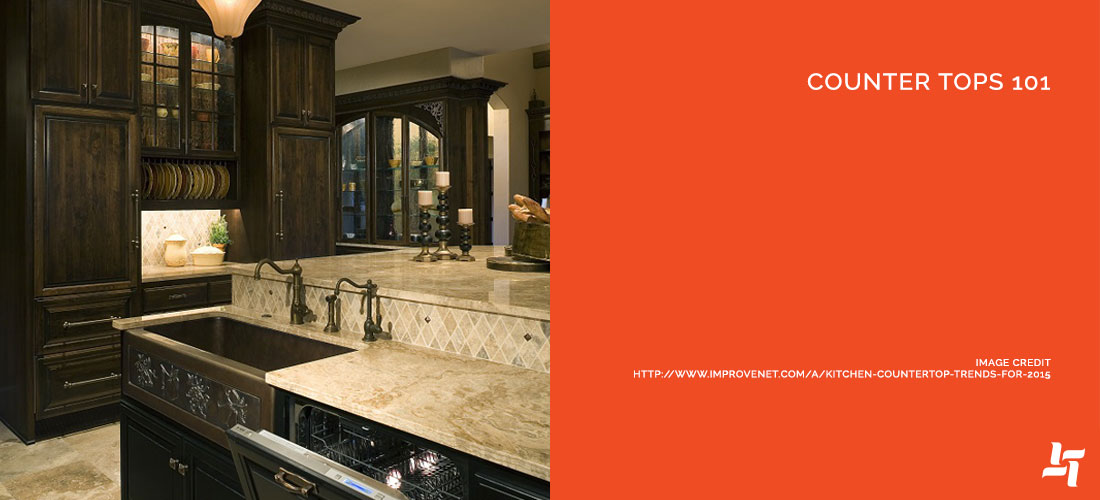
Marble
Average Cost: $100-250/ sq. foot
Durability: Average (strong but soft surface)
Heat Resistance: Average
Stain Resistance: Poor
Cleaning and Maintenance: Avoid acidic cleaning substances as they can erode and stain the material. Marble is generally porous, so make sure to clean the countertops regularly to avoid bacterial build up.
Pros vs Cons:
Pros: Marble is the epitome of luxury in a kitchen renovation and offers the classic white countertop look. It works with nearly every style and is long lasting. Marble’s naturally cool surface is great for bakers.
Cons: Unfortunately, luxury comes at a price, with marble being one of the most expensive stones out there. It also is a softer stone meaning it is prone to stains and scratches. As with all stone countertops, avoid placing hot pans directly on the surface.
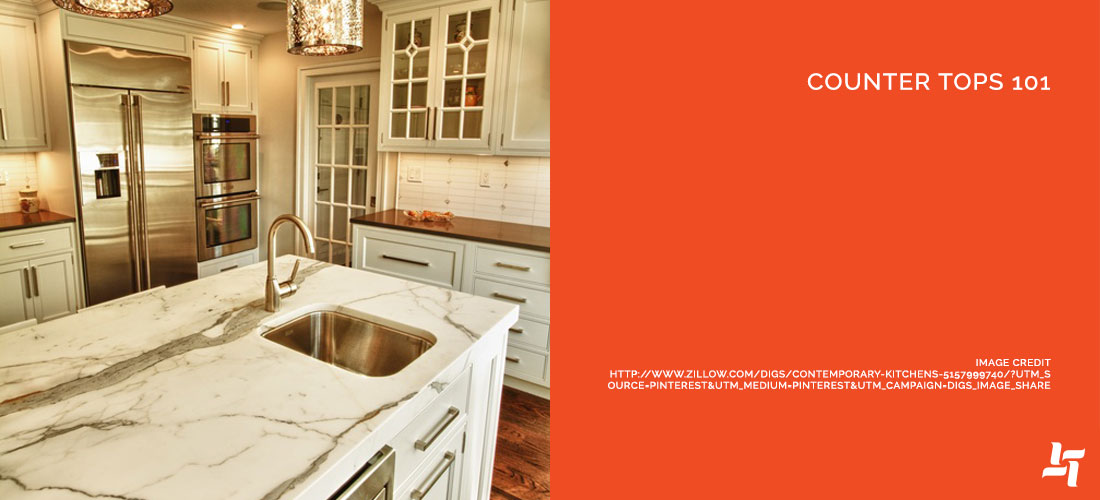
Granite
Average Cost: $50-200+/sq. foot (varies hugely based on quality and style)
Durability: Excellent
Heat Resistance: Excellent
Stain Resistance: Excellent
Cleaning and Maintenance: Requires a sealant but is low-maintenance beyond that; clean with damp cloth and regular cleaning materials.
Pros vs Cons:
Pros: Granite has become one of the most popular countertop materials due to its durability and huge variety of looks. A naturally dense material, granite is very resistant to dents and scratches.
Cons: Due to its extensive range of looks, the price of granite varies dramatically based on colours and composition, such as vivid blues and semi-precious stones. The number of options can be overwhelming to some.
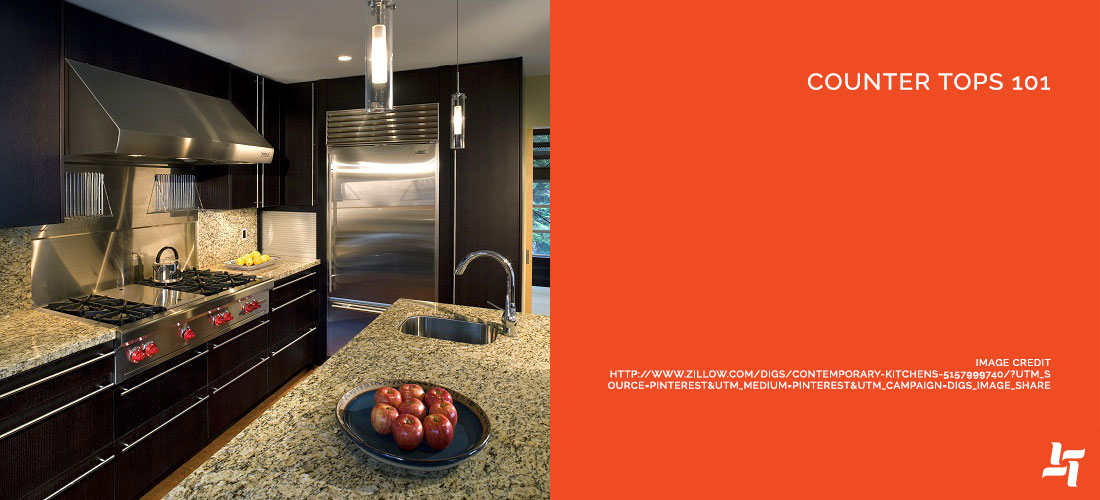
Concrete
Average Cost: $150-250/sq. foot
Durability: Excellent
Heat Resistance: Average
Stain Resistance: Average
Cleaning and Maintenance: Requires a professional sealant. Low-maintenance cleaning but avoid harsh chemical cleaners (for protecting sealant)
Pros vs Cons:
Pros: Concrete is incredible in the variety it offers, not just for colours and dyes, but with features as well. Concrete is essentially set in a mold custom made for your kitchen, so you can add any features into that design, such as draining boards and curved edges. If grey isn’t your thing, dyes can be added to the concrete mix for your preferred colour. The concrete material itself is one of the most indestructible countertop materials available.
Cons: Concrete can develop hairline cracks during the setting process, so make sure to use a professional. Due to this, the surface can become porous, so a proper sealant is necessary. The sealant itself is not as durable as the actual concrete material; don’t be too careless with harsh or acidic chemicals. Finally, concrete is one of the more expensive materials due to its custom options and the professional installation required, but you get what you pay for. Fabrication time can be up to 6 weeks.
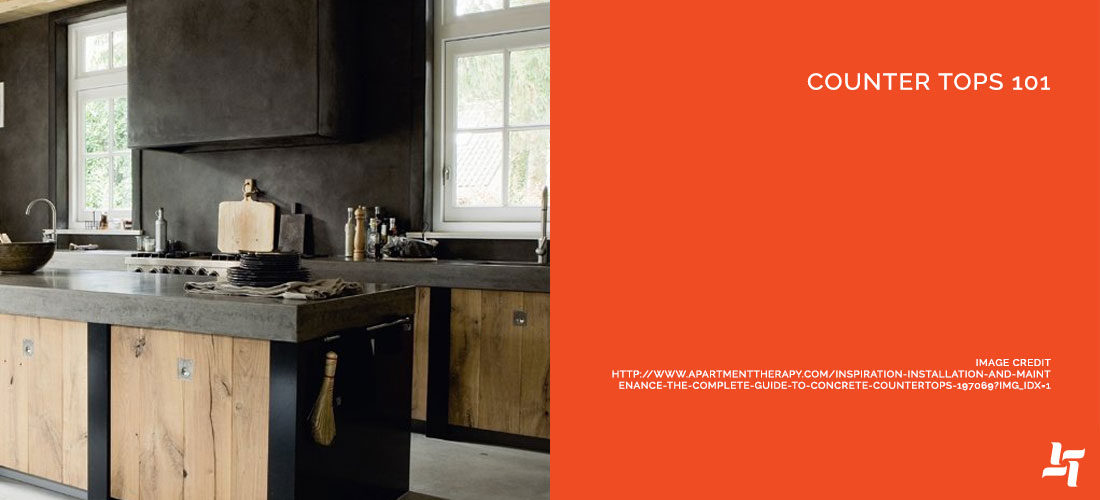
Soapstone
Average Cost: $95-150/sq. foot
Durability: Excellent – though not completely resistant to scratches and wear
Heat Resistance: Excellent
Stain Resistance: Excellent
Cleaning and Maintenance: Minimal cleaning effort, as it’s bacteria resistant. Use a damp cloth.
Pros vs Cons:
Pros: Soapstone is so durable that it is considered a lifetime investment and is often used in laboratories. The material is extremely dense making it nearly impossible for bacteria to penetrate and it is unaffected by heat – one of the only countertop materials with that claim. Additionally, the soapstone’s soft material means that things like draining boards can be carved into the design.
Cons: That same softness means that soapstone can build up scratches and wearing on corners. The greener the material, the softer it is. Scratches can be sanded out depending on the severity and some homeowners appreciate the weathered look as adding character. As with all stone counters, avoid cutting directly on the surface.
Note: make sure that architectural grade is used, rather than the less dense artistic grade.
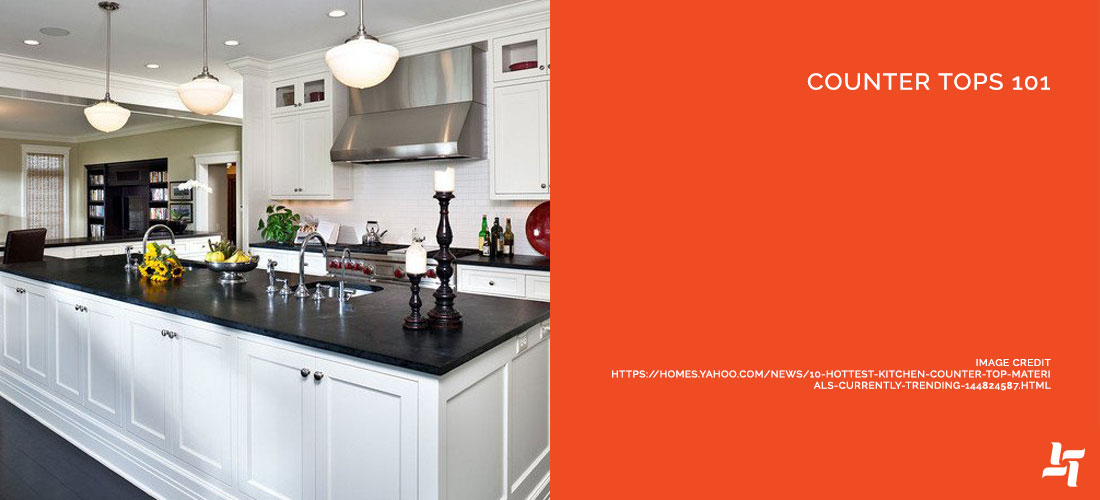
Metal
Stainless Steel
Average Cost: $80-150/sq. foot
Durability: Average
Heat Resistance: Excellent
Stain Resistance: Excellent
Cleaning and Maintenance: Does not require sealant, can be cleaned with any substane. Does require regular cleaning to avoid fingerprints and streaks.
Pros vs Cons:
Pros: Stainless steel surfaces are the standard in commercial kitchens for their durability and cleanliness. The nonporous surface means that stainless steel is both stain and heat resistant, as well as being easy to clean and keep free of bacteria. This material does a lot with minimal maintenance and is worth the pretty penny.
Cons: Due to the professional installation required, metal surfaces are one of the most expensive options for countertops. Though durable, stainless steel can be dented and scratched as easily as most metals, so use it gently. For some, keeping the surface free of fingerprints and streaks can be a pain.
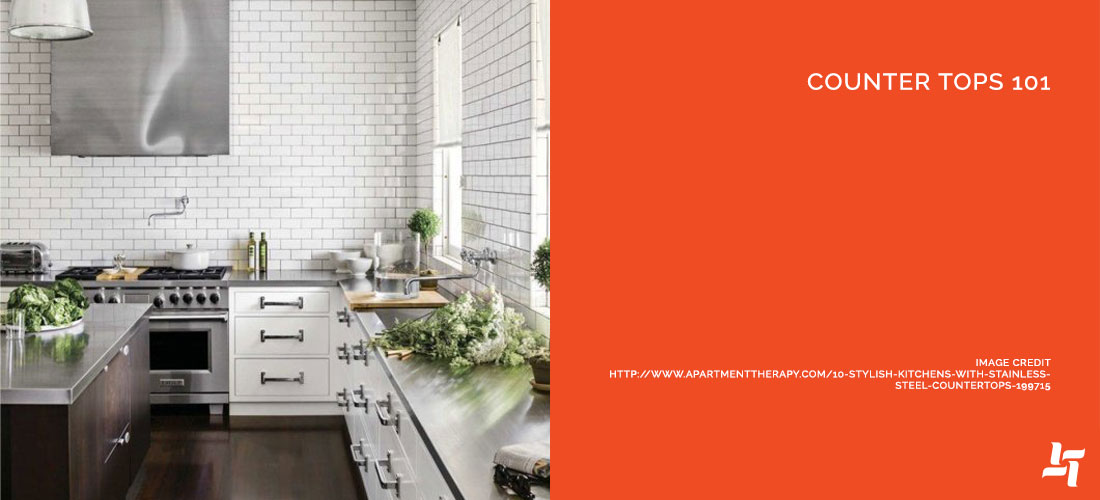
Copper/Zinc
Average Cost: $80-150/sq. foot
Durability: Average
Heat Resistance: Average
Stain Resistance: Excellent (not including weathered changes to material)
Cleaning and Maintenance: Does not require sealant, can be cleaned with any substane. Does require regular cleaning to avoid fingerprints and streaks.
Pros vs Cons:
Pros: Copper and zinc are extremely malleable, meaning they can be molded into just about any shape. Their patinas and time-built character offer the most unique look for your kitchen. These materials are still versatile though, and can be applied to both traditional and modern styles. The biggest pro of these surfaces is their cleanliness and antimicrobial properties. Metal surfaces are the best bet for people concerned about germs and contaminations in their kitchen. Particularly with zinc, these metals are great at fending off stains.
Cons: Like most metals, copper and zinc are soft materials susceptible to dents and scratches, though most dents can be rubbed smooth again. With copper, some homeowners appreciate the tarnished look that can build over time. Though zinc and copper are resistant to stains, they do react with other elements over time; copper will oxidize into red-brown colours eventually. The biggest downside to consider with these two materials is their cost. Installation requires serious professionals and the price will reflect that.
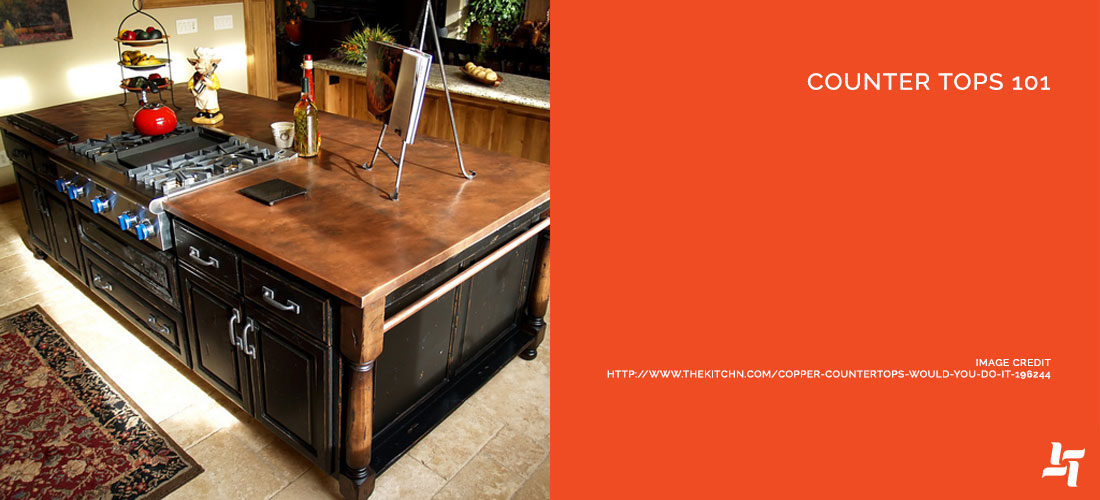
Alternatives
Laminate
Average Cost: $30-50/sq. foot
Durability: Average
Heat Resistance: Average
Stain Resistance: Poor
Cleaning and Maintenance: Little long term maintenance is necessary beyond any repairs that may arise down the road. Cleaning should be done with gentle cleaners or a damp cloth.
Pros vs Cons:
Pros: The most affordable countertop option available to you. Laminate surfaces once got a bad wrap for being cheap, but options and quality have risen dramatically over the last decade. There are several different styles and looks available to you. To the untrained eye, a laminate countertop is indistinguishable from granite.
Cons: With laminate’s affordability, you do have to compromise on durability. Treat the counter with care, as knives can scratch the surface and heat is only tolerable to a certain degree.
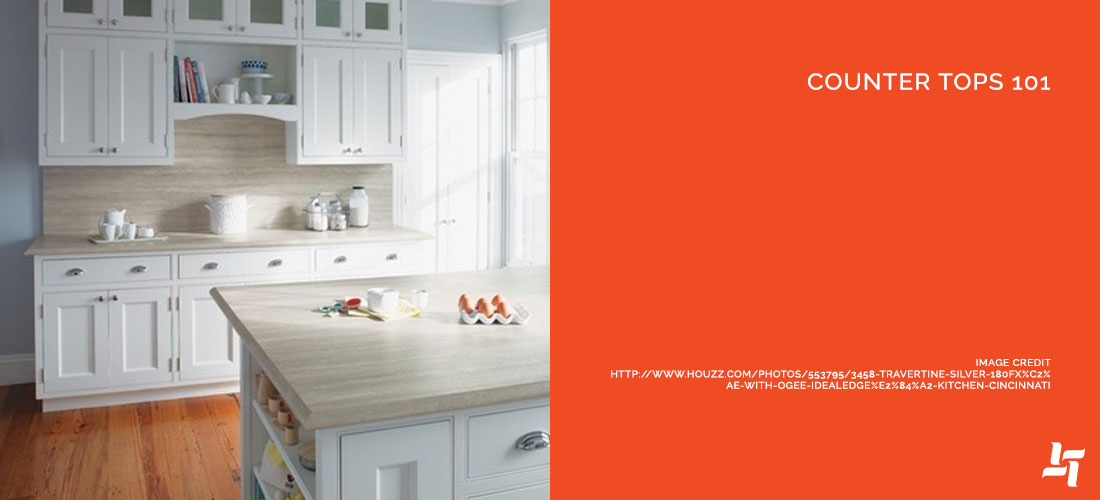
Wood/Bamboo
Average Cost: $50-250/sq. foot
Durability: Average to excellent (depending on wood)
Heat Resistance: Poor
Stain Resistance: Average (depending on sealant)
Cleaning and Maintenance: Wood requires a proper sealant for comfort and longevity but cleaning is as simple as a damp cloth. Like with cutting boards, be careful not to leave standing water on the surface.
Pros vs Cons:
Pros: Wood is great option for a countertop material, with butcher blocks built right into the counter. It brings a warmer feel in comparison to metals and stone. The features of wood counters vary depending on the type of wood, sealant, and construction quality. In general, wood is very durable and hard to dent. With the proper sealant, wood counters can resist damage from water, heat and physical contact.
Cons: : Like any cutting board, scratches from knives can build up over time, especially with softer woods; try for a harder wood, like bamboo. Scratches can make the surface porous, so be sure to take extra care with cleaning if this occurs. Long term or consistent exposure to standing water can leave a ring stain effect, so be sure not to leave wood counters soaked.
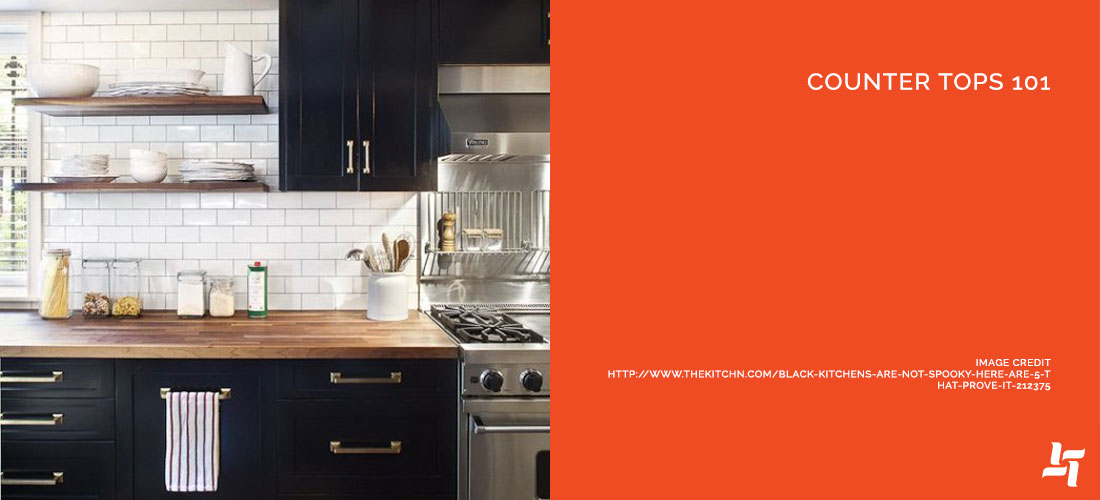
Recycled
Average Cost: $100-160 (glass, cement)/sq. foot
Durability: Excellent
Heat Resistance: Average – heat resistant to approx. 300 degrees
Stain Resistance: Average (depending on sealant)
Cleaning and Maintenance: Requires a sealant routine to cover the porous cement surface for stain and hygienic purposes. Cleaning is low maintenance; a damp cloth will suffice.
Pros vs Cons:
Pros: Recycled glass and cement are extremely durable together and offer beautiful looks. This is one of the greener options for a countertop, for its recycled materials and use of non-petroleum based resins. This material is both heat and stain resistant if the sealant is maintained and applied correctly. An additional pro is that it is lightweight in comparison to other materials, requiring less support.
Cons: : Recycled countertops are only heat resistant to approximately 300 degrees; so don’t be too liberal with placing pots directly on the surface. This option is also one of the more expensive, with dark and midtones usually the only colours available. Cement, though durable, is porous in nature, so the sealant is important to fend off stains and bacteria.
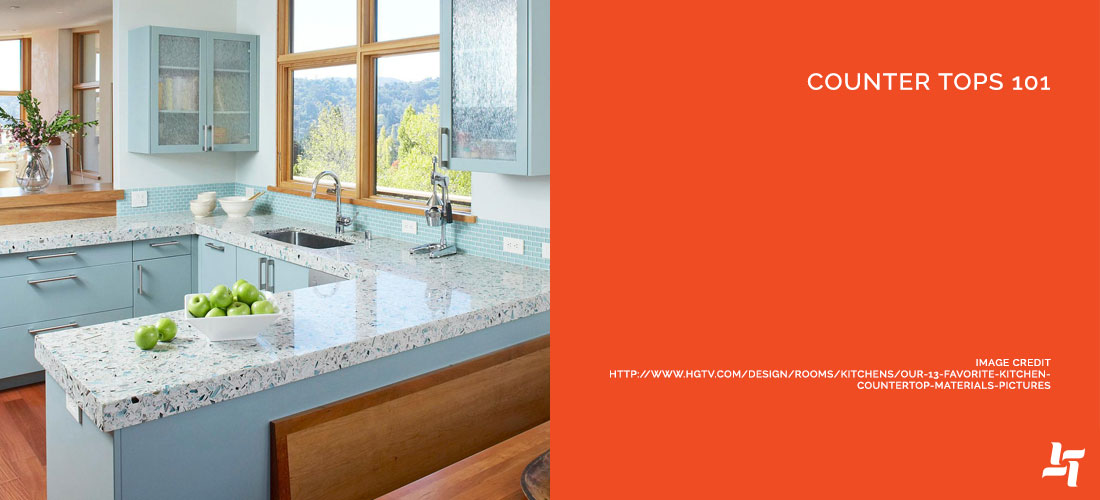
Tile
Average Cost: $10-70/sq. foot
Durability: Average
Heat Resistance: Excellent
Stain Resistance: Excellent
Cleaning and Maintenance: Little maintenance involved but cleaning is a little more difficult when managing porous grout lines.
Pros vs Cons:
Pros: Along with laminate, tile is one of the most affordable countertop options and has serious DIY potential. Both heat and scratch resistant, tile countertops offer a huge variety and the potential for recycled materials.
Cons: : Grout lines make cleaning tile surfaces a bit of a pain; consistent cleaning is necessary to avoid bacterial build up and staining in the porous surface. Also be wary of acidic substances as they can wear down the grout as well.
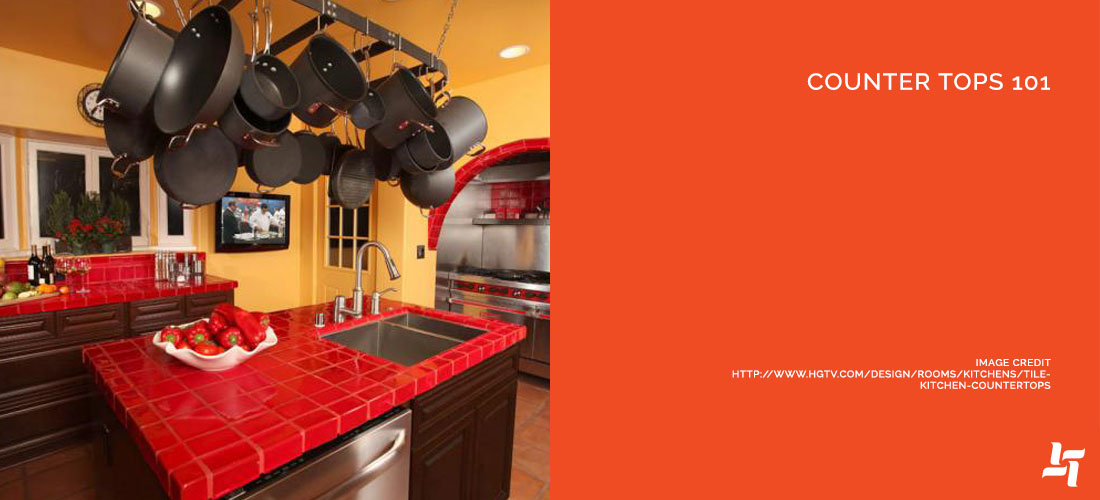
Solid-Surface
Average Cost: $75-250/sq. foot
Durability: Excellent
Heat Resistance: Poor
Stain Resistance: Excellent
Cleaning and Maintenance: Easy to clean, though fingerprints and streaks can build up like on metal surfaces.
Pros vs Cons:
Pros: Solid-surface countertops are the biggest bang for your buck. They are durable, affordable and extremely customizable. Like concrete, they can be created from templates, so designs can be made to your exact needs and wants. This is the ideal option for modern renovations, as the solid-surface finishes and completely unique shapes lend to a futuristic look. This material is nonporous, so it is resistant to stains and bacteria, while using minimal seams.
Cons: Solid-surface counters are actually heat sensitive, so as recommended with most counters, use trivets and cutting boards for hot pans and plates. Though durable, this surface can still be scratched, so cutting boards are recommended again. Be careful to keep the counter from getting soaked for prolonged periods, as the water can discolour the surface if left for too long.
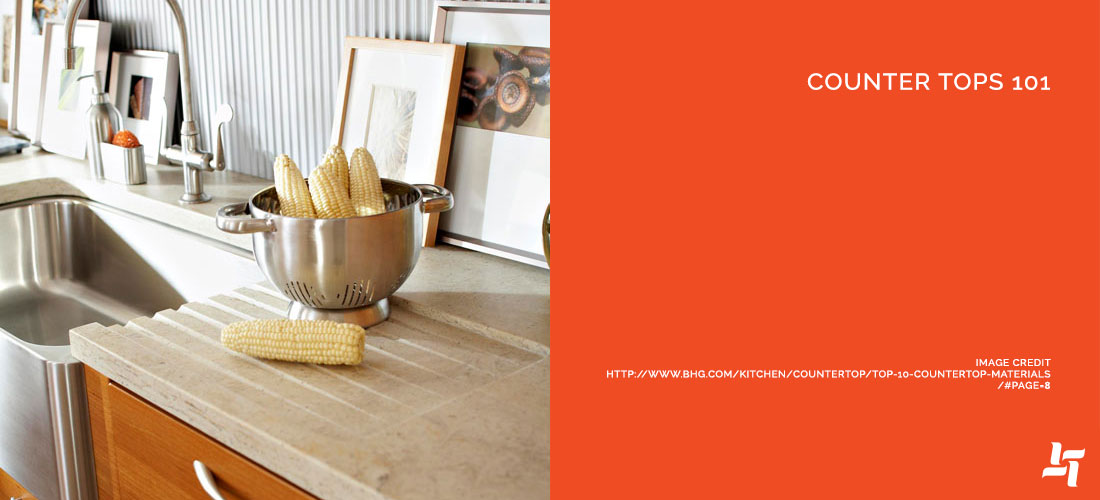
The Bottom Line
The Most Durable
- Granite
- Marble
- Soapstone
- Concrete
The Most Affordable
- Laminate
- Tile
- Solid-surface
- Wood (some)
- Recycled (some)
The Greenest
- Recycled
- Tile
- Copper
- Soapstone (for its long-lasting sustainability)
The Best Value
- Solid-Surface
- Lower end stones
- Concrete
Most Customizable
- Concrete
- Solid-surface
- Soapstone




Sorry, the comment form is closed at this time.